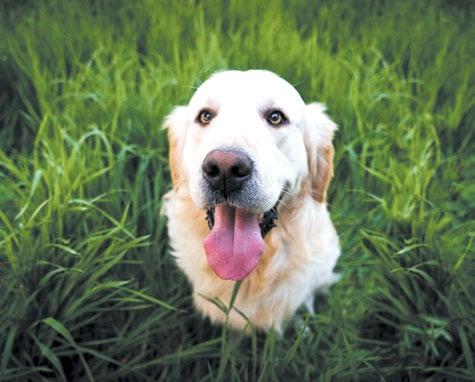
2 minute read
Pets
Repair or replace appliances Electrical - Ceiling fans, light, etc. Plumbing- Faucets, showers General carpentry items Small household repairs Mount flat screen TV in bedroom Install shelves in kids room Install new window treatments Assemble our IKEA Furniture Call Handyman Xtreme! To Do List: ✔
HOME OR OFFICE TO-DO LIST
NOT GETTING ANY SHORTER??
Handyman Xtreme’s Whole Day Handyman Service can Help!
1 company to work with ✔ 1 appointment to be made ✔ 1 set price for whole day ✔ 1 certifi ed crime-free technician ✔ 1 great company to handle it all! ✔
GOT A GREEN THUMB? KEEP THESE PLANTS AWAY FROM PETS!
By Liz Ilig, Puff & Fluff Grooming and Pet Sitting
Plants can be a lovely way to spruce up your home and bring the outside in, but did you know some plants can be lethal to cats and/ or dogs if ingested? The team here at Puff & Fluff wants to make sure your furry friends are safe and healthy all year long! Whether or not you have a green thumb, knowing what plants to avoid can help keep your pets out of harm’s way. Below are some plants and flowers that have been reported to cause illness in both cats and dogs: • Tulip • Lilies • Daffodil • Aloe Vera • Jade Plant • Elephant Ear • Asparagus Fern
Of course, the above is in no way an exhaustive list. In fact, the Humane Society of the United States has identified over 700 unique plants as “producers of physiologically active or toxic substances that are dangerous to pets.” Our advice? If you’re bringing a plant into your home or an outdoor space where your pets have access, do a bit of research first.
Sometimes the entire plant is toxic but for others it may just be the bulb, stem, leaf or petal that poses a threat. Additionally, the toxicity of plants may vary– some may give your pet an upset stomach while others can lead to heart failure. If you have questions or concerns, your veterinarian is always a great source of information!
While you may do everything you can to protect your pet, your furry friend may find trouble outside where you have no control. In that case, it’s best to know the symptoms. If your pet exhibits any of the following signs of illness, contact your local veterinarian immediately: • Diarrhea/vomiting/seizures • Difficulty breathing/coughing • Confusion/depression/shivering
There are plenty of resources out there should you ever have any questions about keeping your pets safe. These include the ASPCA Animal Poison Control and the Pet Poison Hotline.
Call now for SPECIAL pricing! 602-773-1973 HandymanXtreme.com Locally Owned & Operated


INSURED • BONDED • TRUSTED











